The discovery of the men and boys, carried south on a fishing trawler then hidden in secret camps on swampy islands north of Phuket, has raised many questions about human trafficking in Thailand.
Those questions now need to be answered by the military government.
Activists in the Andaman coastal town of Takuapa are leading moves to have international standards of verification and treatment applied to all boatpeople from Bangladesh and Burma.
Men, women and children have arrived by the thousands in recent years, sparking a covert cottage industry of trading in people.
The newest arrivals this week told their rescuers that, with one exception, they had been kidnapped by gangs in Bangladesh and carried south from the port of Cox's Bazaar in the hold of a fishing trawler, against their will.
In extended interviews at a Takuapa community hall with Christian, Muslim and Buddhist activists, the men and boys, with that one exception, claimed to have been taken by kidnappers.
More than 40 wrote their names and their home telephone numbers on a list, which Phuketwan later passed on to the Bangladesh embassy in Bangkok so that their families could be notified that their menfolk were safe in Thailand.
People who answered the telephone calls to the first two names on the list told the embassy that the men involved were travelling voluntarily to Malaysia in search of work, an embassy consular official reported.
Kidnapping is not common in Bangladesh, the official said.
The embassy is now awaiting authorisation from Thailand's Ministry of Foreign Affairs to organise interviews with all of the new arrivals.
Based on what's learned from telephone calls to all of the families on the list, some of the men may revise their accounts.
''It's not unusual for boatpeople to tell lies out of fear,'' said Chris Lewa of the Arakan Project, which plots migration across the Bay of Bengal. ''We have previously encountered people who say they have been kidnapped, but never in such large numbers.''
Kidnap victims or voluntary travellers, the men and boys said they did not agree to be abused by their captors or deprived of food. Several of the rescued group have since required hospital treatment.
The boatload from Bangladesh comes at the beginning of the so-called ''safe'' sailing season when persecuted Rohingya stream south, fleeing ethnic cleansing in Burma, also known as Myanmar.
Among the recent arrivals are 16 stateless Rohingya, but they are long-term residents of a refugee camp in neighboring Bangladesh.
Whether the refugees will be repatriated along with the Bangladeshi citizens remains to be seen.
Human trafficking has become a way of life for growing networks along Thailand's Andaman coast, primarily in the provinces of Ranong and Phang Nga, close to the border with Burma, and in Satun and Songkhla, on the border with Malaysia.
The fine point about whether the boatpeople are victims of people smugglers or human traffickers has been made irrelevant because of the abuse - including rapes and killings - that has taken place in the hidden jungle camps of southern Thailand.
Police along the Andaman coast are inclined to categorise all boatpeople as illegal immigrants, making their jobs simpler, keeping the human trafficking tally low and leaving others to find the budget to feed and sustain the unwanted arrivals.
That suits the traffickers just fine. With few questions asked, the boatpeople are processed according to Thai law - and are soon travelling south again.
With the long sailing season just beginning and stretching through until April next year, the Director of Takuapa District, Manit Pleantong, is taking the matter into his own hands.
The reason: he wants Thailand freed from the taint of human trafficking.
He now has the support of the Phang Nga Governor, Prayoon Rattanaseri, and a growing number of residents who are becoming activists to halt the trade in people through Thailand.
Now it's time for the officials to do their jobs properly. Three Thai men are being held by police over the Bangladeshi boatpeople.

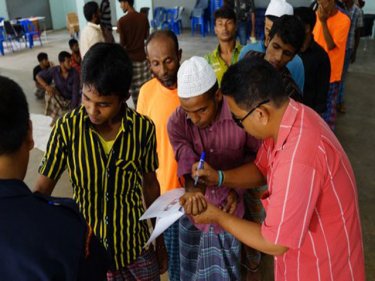
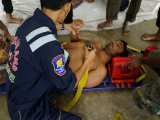
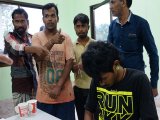
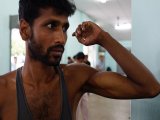
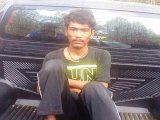
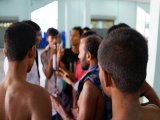
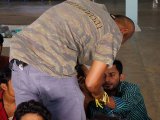
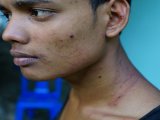

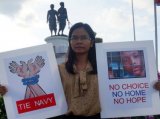
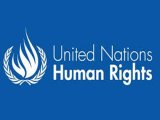

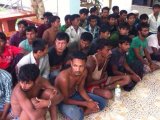



Is this the same way they got to Myanmar and now its Malaysia? Do they actually know what and where Malaysia is and what to expect there and on their journey?
Posted by Roginyosh on October 18, 2014 10:21
Editor Comment:
Sorry, your questions have no relevance.
But if you get the chance, ask them.